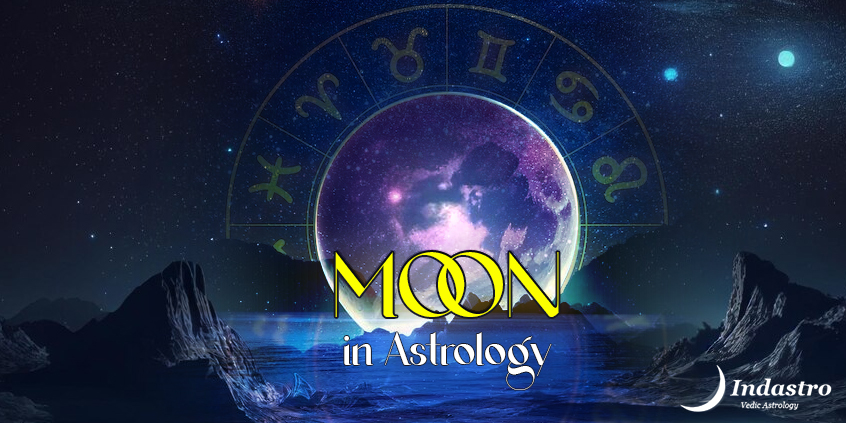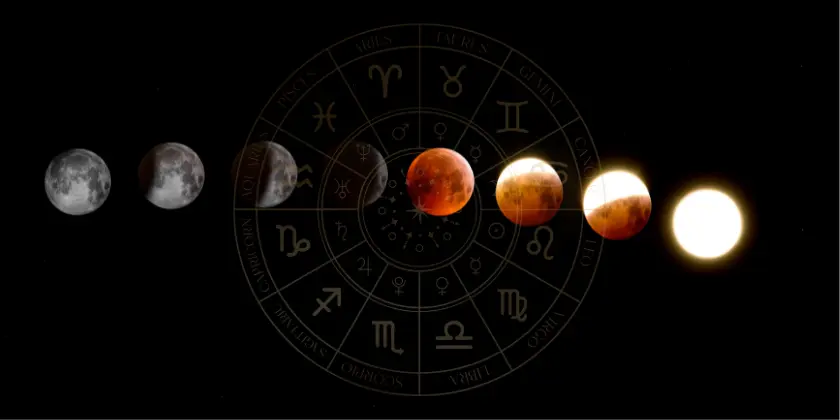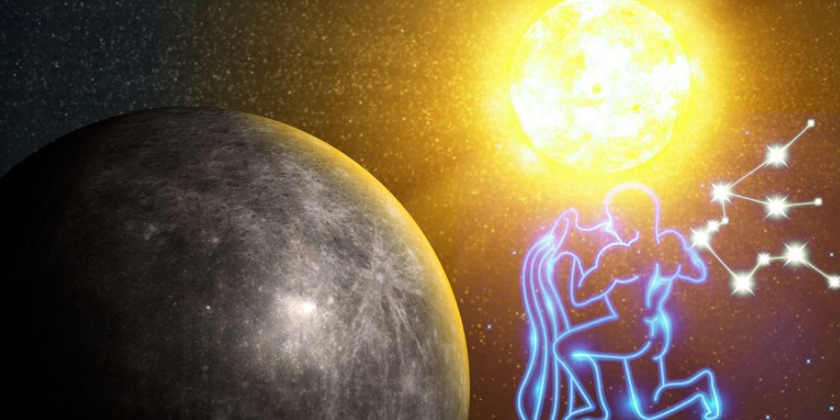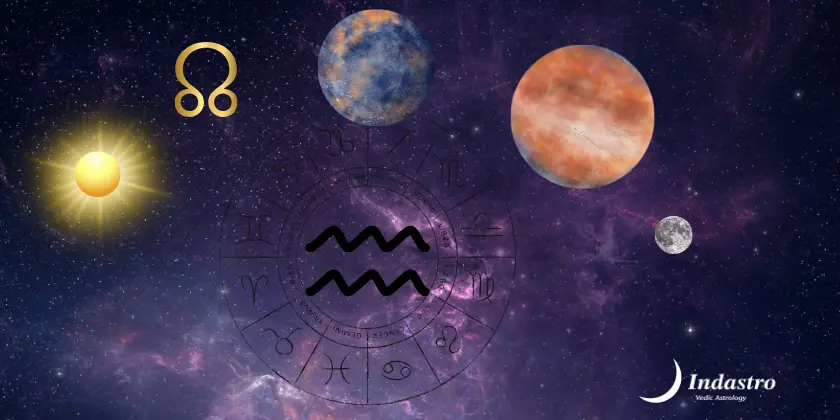Moon in Astrology

Moon planet is the closest celestial body to Earth, and it has the deepest impact upon human life. In fact, depth is what Moon is all about when it comes to its astrological interpretation.
It is the representation of our inner profundity, our emotions, instincts, mood swings, behavior, and how we feel about things and people.
If Sun governs our soul and spirit, Moon is what governs our mind and inner self.
Moon in Vedic astrology is the silver goddess that caresses us from the very beginning in the form of our mother. It is the representation of femininity, motherhood, care, compassion, love, and sensitivity.
People having a prominent Moon in the horoscope are often emotional beings with a nurturing attitude. Natives with Moon in Cancer often turn out to be the best parents in the world.
Astronomical Facts about Moon
It is the natural satellite of Earth and takes around 28 days to complete its orbit around Earth and this cycle is also associated with fertility and femininity.
Moon’s gravitational force is what causes the tides in the ocean, which is also suggestive of our emotional nature, as unfathomable as the deep blue ocean.
It is 3,84,403 km far away from Earth, yet the closest planet to us. The moon never goes retrograde as it orbits around the Sun along with Earth. The moon stays in each zodiac sign for around 2.5 days.
Claim your unique 30 page FREE Horoscope by filling the form below. We follow Vedic Astrology principles & methods for highly accurate reading.
Astrological Facts about Moon
| Transit in each sign | 2.5 days |
| Direction | North-west |
| Metal | Silver |
| Gem | Pearl |
| Day | Monday |
| Color | White |
| Temperament | Cold |
| Gender | Female |
| Ruling Body Part | Bodily Fluids |
| Status in Imperial Stars | Queen |
| Friends | Sun, Mars, Jupiter |
| Enemies | None |
| Neutral | Mercury, Venus, Saturn |
| Own Sign | Cancer |
| Exalted in | Taurus |
| Debilitated in | Scorpio |
| Mool Trikon | Taurus |
| Mahadasha Period | 10 years |
| Relation | Mother |
| Professions | Liquid, dairy products, shipping, navy, water-related, cotton textile, music, poetry, beauty, sculpture, drawing etc. |
Significance of Moon in Vedic astrology
Moon in Vedic Astrology is believed to emit calm and feminine energy. It is the queen among the nine imperial stars and rules our minds and emotions.
This fastest moving planet waxes and wanes frequently, partly the reason for our mood swings and crabbiness.
The moon is what balances the fierce energy of the Sun with its calming and nurturing properties. Moon in fact reflects the sunlight at night to keep us from the all-encompassing darkness.
It also rules over liquids and water, the fundamental needs to sustain in the world and grow. People who are born when the moon is waxing are usually extrovert and bold while those born in the waning Moon are introverted and submissive.
It is the waning and waxing of the Moon that is associated with our emotional temperament, mood swings, climatic changes, oceanic tides, fertility, and menstruation. Thus, its effect upon human beings is both psychological as well as physiological.
A positively placed Moon in the horoscope makes the person mentally and emotionally strong. Such a person has a good concentration and capability of emotional connection with people.
Natives with strong Moon are usually compassionate and nurturing. They usually think of others’ well-being first than meeting their own needs. Such people are usually connected with their surroundings on an emotional and psychological level.
A weak Moon in the horoscope reflects an emotionally weak person, cries a lot, laughs a lot, and is not in control of their sensitivity. Such a person faces a lot of difficulties on an emotional level due to their temperamental makeup.
They can also face mental distress and problems. Moreover, their health also gets affected. Such people need to live a calm life, away from the disturbances, maybe close to a water body for the most soothing effect.
Since Moon is connected to fertility and bodily fluids, the negative influence of the moon in the horoscope can affect health issues related to blood, lungs, breasts, milk, chest, cough, and reproductive system.
.jpg)
Natal Moon Report
Your Moon is the most important planet in your horoscope since it acts as a conduit to everything happening around you and acts as a preceptor to all that you experience at a sub-conscious & emotional level. more
 Total Lunar Eclipse : 3rd March 2026
Total Lunar Eclipse : 3rd March 2026
.png) Venus Transits Pisces, 2 March 2026 till 26 March 2026
Venus Transits Pisces, 2 March 2026 till 26 March 2026
 Mercury Transit and Mercury Retrograde in Aquarius
Mercury Transit and Mercury Retrograde in Aquarius
 The Effect of Solar Eclipse and the 5 Planet Conjunction on 17 February 2026
The Effect of Solar Eclipse and the 5 Planet Conjunction on 17 February 2026
.webp) Mercury Transits Sagittarius, 29 Dec 2025 till 17 Jan 2026
Mercury Transits Sagittarius, 29 Dec 2025 till 17 Jan 2026
